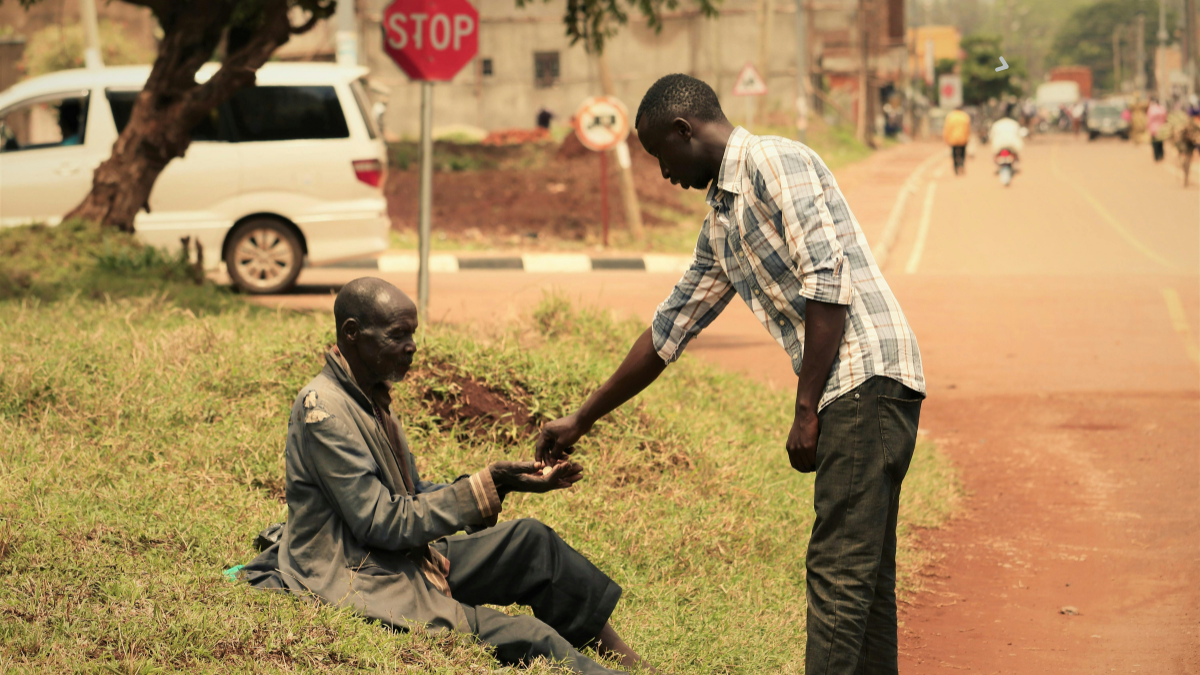Kindness is one of the simplest yet most powerful things you can give to another person—and to yourself. It doesn’t cost a thing, but it can change someone’s entire day. In fact, kindness can even change a person’s entire life.
Sadly, in the hustle and bustle of modern life, we often forget about this simple and beautiful quality. We’re busy, stressed, and focused on our own problems, and sometimes we overlook what kindness can do for others.
On the other hand, showing more kindness can have a significant impact not only on the lives of the people around you but also on your own life. It helps you create healthier relationships, build positive communities, and leave a lasting mark long after the moment has passed.

Why You Should Always Be Kind
1. Kindness Builds Connection
At its core, kindness is about connecting with other people. By treating others with respect, empathy, and generosity, you create trust and understanding. Simple acts of kindness build bridges, making people feel seen, valued, and supported.
Think of it this way: when someone holds the door open, gives you a genuine smile, or asks how you are, you feel a little lighter. That warmth is what connects us as humans.
In the absence of kindness, relationships—whether with close friends and family, colleagues, or even strangers—feel colder and more distant. With kindness, they grow and flourish.
Related: How to Help a Narcissistic Person Without Losing Yourself
2. Kindness Creates a Ripple Effect
One of the most beautiful things about kindness is that it’s contagious. When you’re kind to someone, they’re more likely to pass that kindness on.
For example, imagine you’re in a coffee shop and you pay for the coffee of the person behind you. That small gesture may inspire them to do something kind for someone else later in the day. Your initial act of kindness can ripple outward, reaching people you may never even meet.
The ripple effect shows that it’s not the size of the deed that matters. A small act—encouragement, patience, listening—can create ripples far beyond what you can see.
Related: 11 Ways to Be Compassionate and Empathetic
3. Kindness Improves Mental Health
Kindness is good for those around you, but it’s also good for you. Research shows that when we perform acts of kindness, our brains release serotonin, dopamine, and oxytocin—neurotransmitters that make us feel happier, calmer, and less stressed.
The free and unconditional nature of kindness cultivates gratitude and fulfillment. It reminds us that life isn’t just about personal goals but also about how we make others feel.
Negativity, criticism, and anger drain energy. Kindness, on the other hand, fills you up.
Related: 10 Habits To Improve Your Mental Health
4. Kindness Strengthens Communities
Communities are only as strong as the trust, cooperation, and care between their members. The more people support each other, the safer the neighborhood, the more supportive the workplace, and the more inclusive the school.
Imagine a workplace where people celebrate each other’s successes, help without being asked, and treat everyone with respect. Not only is it more productive, but people also feel proud to be part of it.
On a larger scale, communities grounded in kindness are more resilient. In times of crisis—whether natural disasters or financial struggles—people pull together to support one another. Volunteerism, donations, and words of encouragement strengthen the social fabric we all depend on.
5. Kindness Is Free, But Priceless
Unlike money, possessions, or status, kindness costs nothing. You don’t need to be wealthy or skilled to practice it. A kind word, a helping hand, or a patient ear often means more than any material gift.
Even better, kindness leaves a lasting impression. People may forget what you said or did, but they will never forget how you made them feel. That emotional memory can even shape how they see themselves and the world.
6. Kindness Matters More Than Ever Today
In a world where social media often breeds comparison and division, kindness is more important than ever. The internet amplifies voices, and unfortunately, it also amplifies negativity. Choosing kindness online—as well as offline—means giving empathy instead of judgment.
The same applies in real life. When people are stressed, struggling financially, or facing personal challenges, they may become impatient or self-focused.
That’s when kindness is needed most. It cuts through the tension and reminds us that compassion is always possible.
The Science of Kindness
Kindness isn’t just a moral choice—it’s backed by science. Research shows:
-
Stress reduction: Kindness lowers cortisol, the stress hormone.
-
Longer lifespan: Acts of kindness and strong social connections are linked to better heart health and longevity.
-
Better relationships: Couples who practice kindness and gratitude report greater satisfaction and resilience.
-
Happiness boost: Helping others activates the brain’s reward center, creating a “helper’s high.”
Being kind isn’t only good advice—it’s good health.
Simple Acts of Kindness
Kindness isn’t about grand gestures. The small, consistent actions often matter most. Here are simple ways to add more kindness to daily life:
-
Listen attentively—give your full attention.
-
Offer sincere compliments.
-
Help where you can—hold doors, carry groceries.
-
Practice patience—be gentle when waiting or teaching.
-
Encourage others—remind them of their strengths.
-
Express gratitude—say thank you and mean it.
-
Check in with loved ones.
-
Forgive quickly—let go of grudges.
-
Be kind to yourself—self-compassion matters too.
-
Smile—it can brighten someone’s day instantly.
Kindness Doesn’t Mean Being a Doormat
Kindness does not mean letting others walk all over you. You can still be kind and set boundaries.
True kindness flows from strength, not weakness. It means choosing compassion while respecting yourself. Sometimes kindness requires saying “no” or removing yourself from toxic situations. The key is to approach people with empathy without sacrificing your well-being.
Instilling Kindness in Children
Children learn from what they see. By practicing kindness, you teach them its value. Small gestures—thanking service workers, helping neighbors, or speaking respectfully—leave a lasting impression.
Teaching children kindness not only shapes them into empathetic adults but also helps create a kinder world.
Final Thoughts
Kindness is something we all understand but often underestimate. It has the power to change the world around you. It builds connection, improves mental health, strengthens communities, and creates ripples far beyond the moment.
In a world that can feel divided or harsh, kindness will always matter.
You never know what battles someone is fighting. A small act of kindness might brighten their day—or even change their life. And even when you’re struggling yourself, choosing kindness helps you stay grounded and connected.
Next time you’re at a crossroads, remember: every choice to be impatient instead of understanding, to criticize instead of support, or to be distant instead of warm is a missed opportunity.
Be kind. It always wins.
Because in the end, kindness isn’t just about how you treat others. It’s about the legacy you leave, the love you share, and the world you help create.
Save the pin for later

- 9 Things Narcissists Do That No One Else Sees - 11/01/2026
- How Narcissists React When You Cry - 11/01/2026
- 15 Things To Never Do With A Narcissist - 11/01/2026
